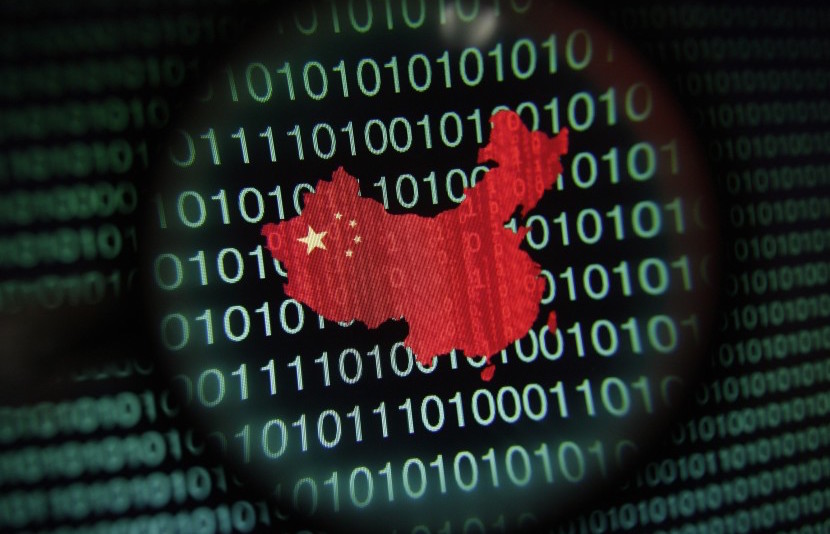The voters have had their say but Shawn Hagedorn says it’s not time for ‘introspection’. And with the ratings agencies lurking like vultures action is needed, a workable growth model to be exact. He draws on lessons from China 35 years ago, when then leadership abandoned isolationist biases to integrate into the global economy. Just as South Africa’s political economy can’t be made to work in isolation now. An interesting read. – Stuart Lowman
By Shawn Hagedorn*
Post-election calls for “introspection” are dangerous. SA must shed its inward looking instincts to determine how it is to compete on the world stage. As the credit agencies have been at pains to point out, the core problem is that SA lacks a workable growth model.

Just over 35 years ago, China’s leaders chose to abandon their longstanding isolationist biases to integrate into the global economy through workers adding value. During the past 35 years, the country expanded its per person income by an astounding 35 times.
Comparable World Bank historic data mixed with SARB projections suggests that, subject to exchange rate fluctuations, SA’s dollar denominated per capita income growth will soon have been negative for over ten years. A self-absorbed perspective has never, and will never, provoke minimally adequate prospects for SA’s youth. The world and SA are now flush with investment capital while there is a global shortage of purchasing capacity – and in SA the situation is extreme.
SA’s domestic generated consumption is hobbled as, middle class workers are mostly underskilled, over indebted, and unplugged from selling into affluent consumer markets. Demand for minerals appears to have been permanently impaired reflecting China’s recent pivot toward the global services-led growth trend.
China and SA had long been isolated economically and politically. However, when under new leadership SA rejoined the community of nations politically, the economic focus thereafter obsessed around income redistribution and consumption. There has been woefully little emphasis on seeking growth through skill building to integrate into an exceptionally integrated and demanding global economy.
Little introspection is required to appreciate that: SA’s ruling party uses redistribution policies to fuse various factions whose interests are otherwise incompatible. Transformation efforts have expanded the ranks of middle class workers far faster than skills have been developed. High-cost lending recycles huge chunks of their household incomes to wealthy investors. The global economy is disdainful toward SA’s policy biases.
In the past two years, SA’s political-economic dialogue was meaningfully upgraded by a sudden appreciation of the crucial distinctions between “patronage” and “corruption”. The economic dialogue needs several further upgrades to escape stagnation inducing policies in favour of sustained rapid and inclusive growth.

In the absence of a powerful growth model, SA’s fiscal house and political calm will both careen perilously. The urban-rural voting splits evidence adversarial political and economic divides between city workers and their less skilled rural cousins.
The battles between the middle class and the patronage set will now shift from elections to economic issues, such as directing pension assets. Fiscal budget constraints can be sidestepped by creatively creating and funding projects that favour political patrons.
A moment’s honest introspection makes clear that SA has no choice but to integrate much more meaningfully into the global economy. Yet the type of introspection which has become standard in SA is much more around identifying symptoms of the failed political economy and then imagining narrow solutions which ignore international realities.
The template which has become common in politics and media is to target a values-based issue which resonates and then identify victims and villains. This is hardly unique to SA. But the overarching issue which is so easy to target today is “inequality” and SA achieved one of the world’s least equitable income distribution patterns through particularly odious legislated policies.

While increasing its average income by 35 times in 35 years, China’s income inequality also expanded. But, importantly, China could not possibly have increased its average income so dramatically in the absence of extreme global income inequality.
Poor people who sell to other poor people escape poverty at a snail’s pace. China’s success at exploiting global inequality served to greatly reduce it. At home, China’s inequality spiked while it achieved poverty alleviation on a previously unknown scale. This is what 21st century progress looks like.
Focusing on inequality is contrary to focusing on competitiveness. The four fraying factions – unionists, communists, cronies, and populists – of the ruling party all favour redistribution far ahead of supporting pro-competitiveness policies. Thus SA’s politics and economics have become untenable.
Read also: EFF’s Dali Mpofu: Changing the Constitution. Tackling inequality, poverty.
SA’s high income inequality, largely along racial lines, has inspired forms of introspection which suffocate workable growth solutions. Meanwhile, the cronies who are said to dominate the ruling party have entrenched their power through being able to secure the support of poor rural voters.
SA’s national patronage machine now fosters both class and racial divisions along rural-urban and young-old cleavages. As the voting support of “clever blacks” is probably not seen by cronies as reliable, they might be prepared to further alienate them in the run-up to 2019 elections.
If the ruling party’s introspection focuses on the political calculus of entrenching power, SA will again become ever more isolated, fragmented, and unequal. Forging an inclusive growth strategy requires much greater integration into the global economy.
- Shawn Hagedorn is an independent strategy advisor. Follow him on twitter @shawnhagedorn.

